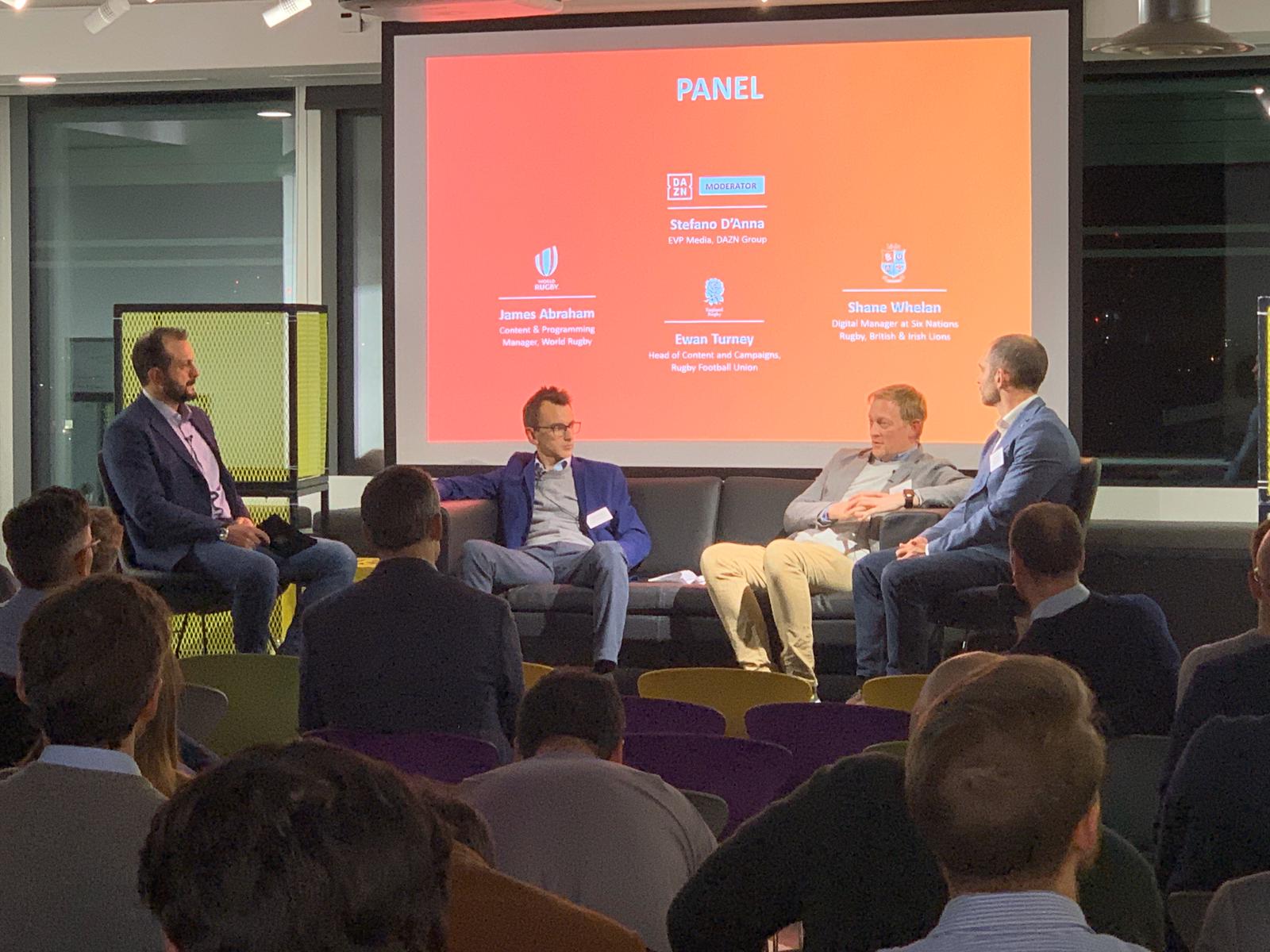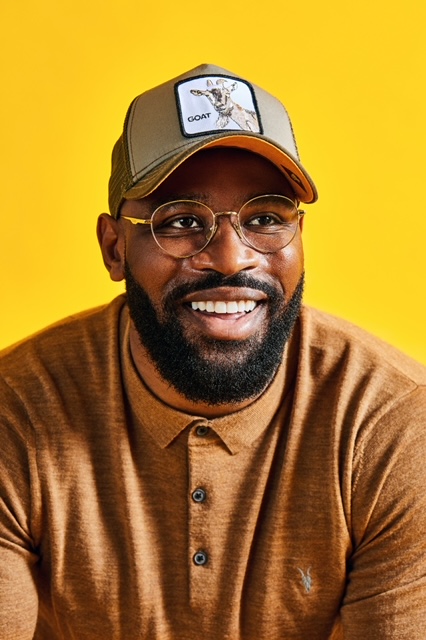Our top takeaways from the Rugby World Cup Retrospective
The Rugby World Cup Retrospective, held in a stunning room at DAZN, brought the Rugby World Cup back to life in what was a celebration of the tournament and the nature of digital throughout month and a half of fantastic action in Japan.
Ewan Turney of the RFU, Shane Whelan of the Six Nations and British & Irish Lions and James Abraham were led by DAZN’s very own Stefano D’Anna in what was an hour and a half of insightful discussion, where Rugby’s strong points were celebrated but its weaknesses were rightly raised, challenged and offered solutions.
The sport thrived in Asia, a market it’s not typically renowned for being regularly present in, but it’s still got a long way to go in order to truly hit all areas of the globe. Having heard our panellists discuss all this and more, here’s our top five takeaways from a wonderful night in Hammersmith, London.
Rising Suns shows different side of England players
The Rising Suns campaign was a regular feature of the Rugby Football Union’s work towards getting the players more in the eye of the public, more known and more engaged with. The feature involved behind the scenes shots of the players, coaches and the rugby matches as a whole, with Eddie Jones narrating throughout the video. These were recorded, edited and released throughout the tournament, which is phenomenal access considering most other sports probably wouldn’t allow it.
Ewan explained that the campaign was there to show the public what they wouldn’t normally see, but that there was also an attempt to try and change the stereotype attached to England rugby players. Perhaps a stigma that comes from Universities, RFU wanted to show the real human side of the team.
There remains a great opportunity to promote personalities
Shane was clearly passionate about the way rugby players are promoted and felt the Lions tour presented a great opportunity to take a squad of the best British players and promote them on various digital platforms. This is something the Lions will look to do more frequently going forward.
He believes the opportunity is there for rugby as a whole to use the personalities in the game, and that rugby can and should continue to build on this sort of trend that’s occurring more and more across social platforms. Of course there’s always a degree of professionalism that must be maintained, but it’s very easy for players and athletes of any kind to be held back by clubs and the media, and personalities help to keep players and their teams memorable, noticeable and relevant. Using players and their natural charisma is something the Six Nations and Lions want to do going forward.
Social Media thrived throughout Japan19
World Rugby recorded some very impressive statistics by the end of the tournament when it came to social media following and growth. When quizzed on where in particular the growth was most noticeable, James Abraham explained that all varying types of social played a part throughout the tournament, doing better at certain things than their competitors, making them ultimately all useful as a team of resources.
YouTube was unsurprisingly said to be the most successful platform for video streaming including highlights, while Facebook attracted the most attention for traditional audiences and rugby stories, whereas Instagram and Twitter thrived in the publishing of instant and breaking news. All of those and more had their part to play throughout a wonderful tournament.
Tonga created their own content, and people loved it
How does a team succeed digitally that doesn’t typically have the same media presence around it, or perhaps the same resources as other countries? Well, the answer is to keep it simple, and do it yourself.
Tonga generated over 10m views on their videos shot post-matches and sent to World Rugby, videos that would later go viral. James Abraham believes that the nature of these videos and the simplicity of them shows that you don’t have to do anything extravagant to create good content and promote yourself, and Tonga proved that throughout the tournament.
To conclude, Rupert Pratt, who oversees Digital Sport for Snack Media, said: “The discussion was great, in particular around unofficial media, content producers and influencers was incredibly interesting. It’s evident rugby still has much to do in order to continue to grow its audience, especially when it comes to engaging new and younger fans. If you compare rugby to football when it comes to volume and frequency of very high quality, creative and engaging official and unofficial content, there still remains a clear gap between them.
“It was a great event and I’d just like to thank our panellists Shane Whelan, James Abraham, Ewan Turney and moderator Stefano D’Anna for their crucial part in the evening. I’d also like to thank DAZN’s Richard Lambert and Abigail Williams for hosting us along with all the food and beverages, it certainly added greatly to the occasion.”
About author
You might also like
Sports Pundit And Former Rugby Union International Ugo Monye Joins The Women’s Sport Trust As A Trustee
Today, leading women’s sports charity, the Women’s Sport Trust (WST) announces the addition of ex-Harlequins star and diversity champion Ugo Monye to its board of trustees. Following his stellar rugby
Rugby League World Cup 2021 Organisers On Schedule To Deliver Trailblazing Tournament
RLWC2021 organisers have confirmed that they will deliver the biggest and best ever Rugby League World Cup in October and November 2021 To mark the 100-day countdown to the opening
New ‘Inside The Tour’ Podcast Tells The Definitive Story Of The ‘97 British Lions, By Those Who Were There
New 10-part podcast series (an Auddy Original) delivers the inside track on the British and Irish Lions legendary 1997 tour to South Africa ‘Inside the Tour – The Lions 1997’ features interviews with Lions’ legends Sir Ian McGeechan, Matt Dawson, Scott








